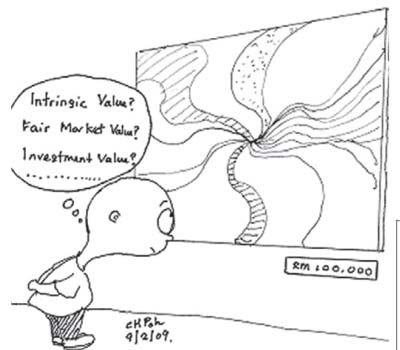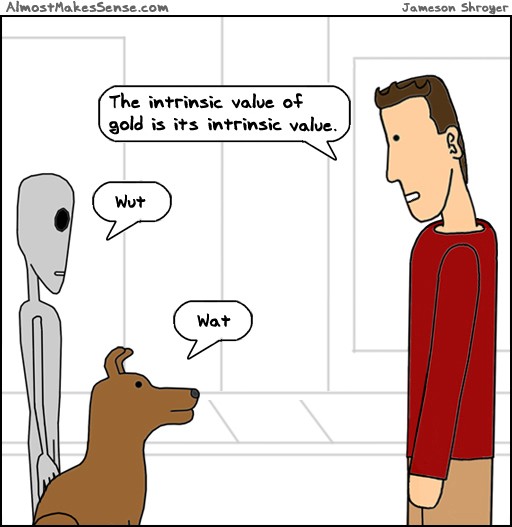Intrinsic Value
Post on: 16 Март, 2015 No Comment

Intrinsic value is not a range of values, rather it is a precise assessment of a company’s value (worth) based on the performance of a company and a view of its future sustainable profitability, also known as normalised return on equity.
At any time a stock has a price, which is what the market is prepared to pay for it, and a value, or what it is worth. Value investing is founded on the concept that price and value are different. Put simply, price is what you pay, value is what you get .
The stock market supplies us with the price; the price can be found any time with a couple of mouse clicks.
But how do you determine a stock’s value?
There are a few ways, through a company’s discounted cashflow (DCF); companys net tangible assets (NTA); a stocks multiples – utilising the price/earnings (P/E) ratio or EBITDA multiple (earnings before interest, tax, depreciation and amortisation).
However, a better approach is to calculate the individual stock’s intrinsic value and then check how closely the market price reflects this.
The method to calculate intrinsic value is not a mystery and is freely available in the public domain.
For decades people have refined and revisited the process to calculate the intrinsic value of a business. The intellectual framework was set by Benjamin Graham in the 1930s publication of Security Analysis and it is still viewed today as the central text for investing. This was further developed in the 1960s by James Walter in Dividend Policy and Enterprise Valuation with Phillip Fisher adding meaningfully to the qualitative aspect of investing with his classic Common Stocks and Uncommon Profits. Warren Buffett leveraging from Graham’s works and teachings gave us a marvellously simple valuation method to value businesses that distribute all of their profits in his 1981 shareholder letter.
The final piece of the puzzle was refined by Richard Simmons. an Oxford MBA who gave us the method to value the growth part of a business. Thus the concept of intrinsic value has been developed over decades with the intellectual rigour of some of the worlds most successful investors.
Every business has an intrinsic value derived from its companys fundamentals and performance (historical and forecast). This value may show no resemblance to the current market price because the market is not always efficient or rational.
It is a companys fundamentals, specifically its return on equity (profitability) and its inherent business or investment risk that creates the value.
Intrinsic value is not static; for instance it changes at least twice a year as a company reports its half and full year results. Indeed, intrinsic value may change more frequently due to corporate events such as company guidance, acquisitions, buybacks and capital raisings. Intrinsic value however does not change with anywhere near the frequency that market price changes.

A future forecast of intrinsic value can be derived and it will capture the lift in value of a sound business. A sound business is simply one that grows in value over time due to the returns it generates on its retained earnings. It is the compounding of returns that distinguishes sound businesses from mediocre ones. It is the forecast of intrinsic value in one or two year’s time that captures the compounding of value that accrues to owners over time.
To understand how you determine the intrinsic value of a company, read Calculating Intrinsic Value . For a complete worked example using Blackmores Limited, see this Worked example of Intrinsic Value .
Find out the intrinsic value of your stocks of interest
Register for a free trial to StocksInValue
The hard work is all done for you. Brought to you by Clime and Alan Kohler’s Eureka Report. StocksInValue is an online stock valuation & research platform which provides you with the intrinsic value of listed companies. Not only will you have the valuations, you will also gain access to our analysts’ commentaries and company insights to accompany those valuations to help you make smarter investment decisions.
Read more about Value Investing | Key factors when valuing a stock














